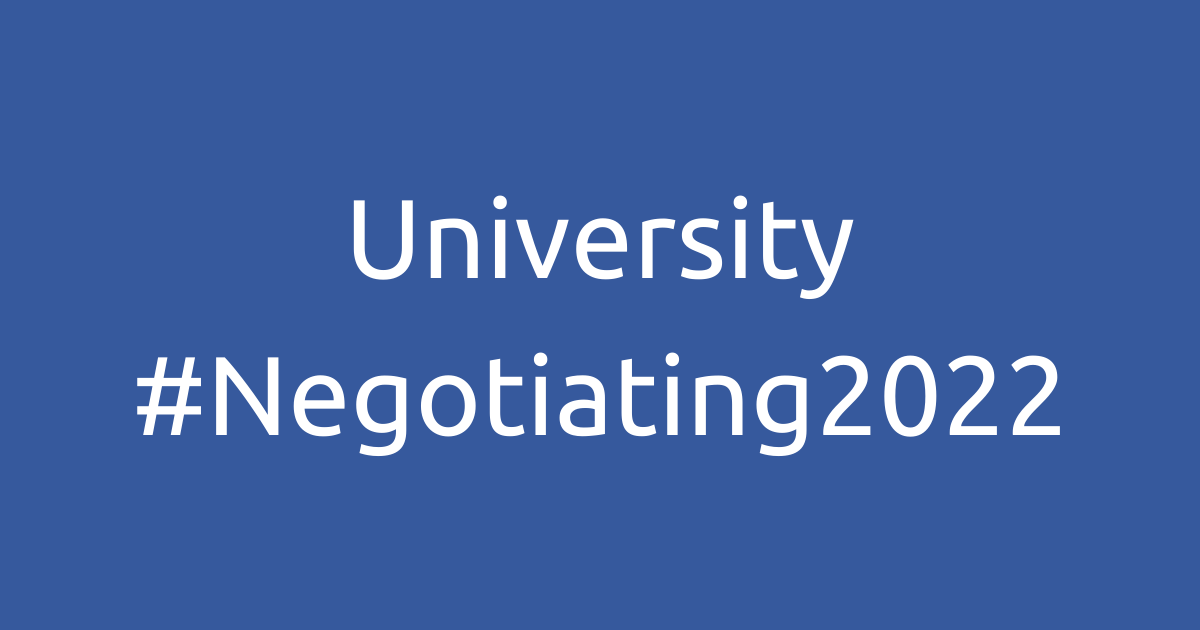|
- Several questions are still open. One question of principle is whether the parties are willing enough to implement the family leave reform in the agreement, JUKO’s Head of Collective Bargaining Katja Aho says.
Objectives which are important for JUKO include:
- More time for research and artistic endeavours..
- Clarification of the ground rules on remote and multi-locational work, particularly for other professional staff.
- University employees want the family leave reform, which enters into force at the start of August, to be included in their terms of employment, particularly in the form of equal payment of salary during new parental leave.
- Seventy per cent of teaching and research staff still work on fixed-term contracts. The methods to fix this situation must be found at the negotiating table.
- Increased workloads must be taken into consideration in the collective agreement.
- University employees have been overstretching themselves throughout the pandemic and they deserve commensurate pay rises. JUKO seeks general percentage increases to ensure all staff groups see their salaries progress. There is no justification for university employees receiving lower salary increases weaker than employees in other sectors.
If a negotiation result is not reached on Thursday, university employees will be without a valid collective agreement as of Friday.
This week is one of intense negotiations on the universities’ collective agreement, and the parties have met every day from Monday to Thursday.
Notice has been served to terminate the universities’ current collective agreement, effective 31 March. If a negotiation result is not reached before that date, university employees will be without a valid collective agreement as of 1 April.
In such circumstances, the universities will continue to apply the terms of the old collective agreement until a new one enters into force. This is known as the after-effect.
During a state of no valid collective agreement, there is no obligation to maintain industrial peace and industrial action is possible if the employees and employer do not reach agreement on terms of employment.
The university sector collective agreement negotiations began on 11 February.
Negotiations in focus across all our channels!
We will be publishing updates about the collective agreement negotiations on our website, www.juko.fi. Follow us and the conversation on Facebook and Twitter, @JUKOry, using the hashtags #neuvotellen2022 #yliopisto #meolemmeyliopisto. We have content about the negotiations aimed at young adults on our Instagram account, @juko_ry.
The Collective Agreement Campaign website, from JUKO and the relevant unions representing university staff, explains the significance and content of the collective agreement to university staff: www.tyoehtosoppa.fi.
University Facts
| |
Collective agreements | Universities’ general collective agreement and the teacher training school collective agreement
Negotiators | head of collective bargaining Katja Aho (JUKO), director Tarja Niemelä (Finnish Union of University Professors), special adviser Hanna Tanskanen (Trade Union of Education in Finland, OAJ), negotiations manager Petri Toiviainen (Social Science Professionals) and Director of Advocacy Mia Weckman (Finnish Union of University Researchers and Teachers)
Main contractual parties | JUKO, Pro Trade Union, the Trade Union for the Public and Welfare Sectors JHL, and Finnish Education Employers
The universities’ general collective agreement covers an approximate 34,000 employees.
Why collective agreement negotiations?
The employee unions and employer federation negotiate a collective agreement which contains many labour provisions not found in legislation.
They agree in the negotiations on issues such as pay rises, teaching and research employees’ total working time, and working time and annual leave provisions for other specialist staff. The collective agreement sets a base level of contractual terms which can then be improved upon in local, more specific agreements.
The collective agreement provides qualitative and monetarily defined benefits. Negotiations typically discuss the qualitative goals and their possible cost impacts first, before turning to agreement on salaries in the final stage.
|
|
|
